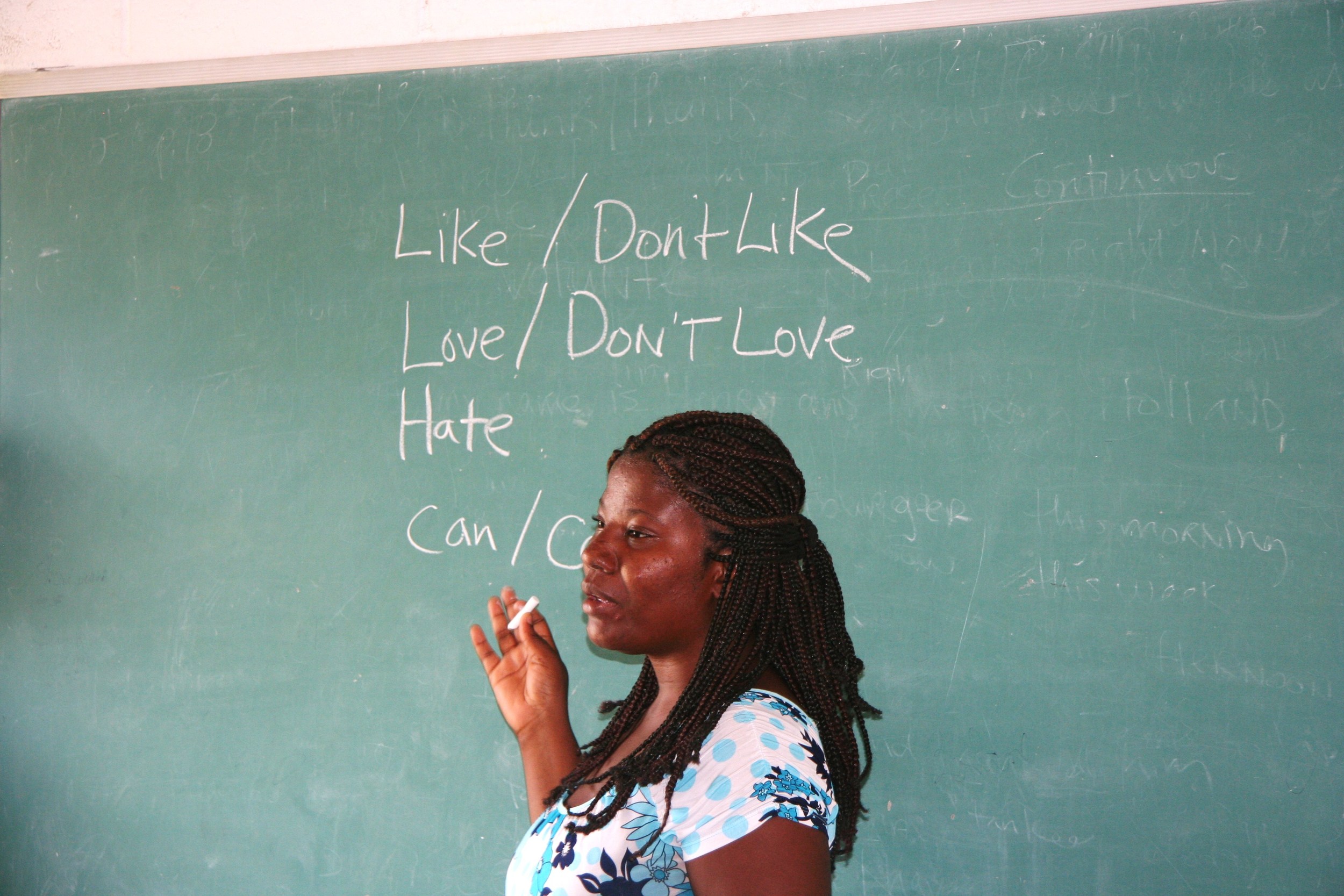Guest post from Andy Chaggar, Executive Director of European Disaster Volunteers (EDV) who are using FrontlineSMS in Haiti:
European Disaster Volunteers' mission is to help disaster affected communities worldwide achieve sustainable recovery. This means doing more than simply addressing the damage caused by disasters; it also means addressing the underlying, long-term factors that made communities vulnerable in the first place.
We’ve been working in Port-au-Prince, Haiti since June 2010 and have placed a high priority on education since the beginning. EDV has rebuilt or repaired 36 classrooms in eight schools, are providing scholarships to 50 primary school children, and also run free English classes for adults.
Having originally graduated with a degree in electronic engineering in 1999, this work is a major change in direction for me. However, given my previous career it’s probably not surprising that I’ve retained a strong interest in technology, particularly in its application to disasters and development. So, when I heard about FrontlineSMS, I immediately saw its usefulness to EDV’s current work in Haiti.
From the outset I knew FrontlineSMS would be particularly helpful for our English Education program. English is a key vocational skill for Haitians seeking employment and, almost as soon as we arrived, we started getting requests from our community for language support. Over the past 17 months, what began as informal classes has developed into a structured program that includes 120 students in eight weekly classes at four different levels.
Managing communications in the program was a challenge from the outset. In addition to the students, we have to coordinate our Haitian teachers and international volunteers. Everyone needs to be kept informed of the time and location of meetings and scheduled classes are prone to disruption.
In a country like Haiti, everyday issues like teachers being ill are compounded by problems of instability. Potential hurricanes, political unrest or simply a particularly heavy rainstorm all have the ability to disrupt class, so the ability to communicate is vital.
Very few Haitians have regular access to the Internet so group emails aren’t an option. Before using FrontlineSMS, we would often have to scramble to call, or text, everyone affected to reschedule a class. In some cases, such as during heavy rain, an unlucky volunteer would have to walk to a class where we knew very few students would turn up simply to apologise to the few who did and tell them to try again next time.
Now, by using the software’s ability to create contact groups, we can very quickly and cheaply text all students in a given class or call all of our Haitian teachers in for a meeting.
Our English program is very popular and also has a big waiting list. When spots in our various classes recently opened up, we were also able to use FrontlineSMS to text over 100 prospective students and invite them to take a placement test so we could fill the classes with students at the right level.
Overall, this simple but effective technology has made managing our English Program much easier. Without FrontlineSMS, we would still be using chaotic, time-consuming and inefficient methods of communicating, all of which would distract and disrupt the actual work of teaching.
The fact that FrontlineSMS is free is also very appealing to us. While we’re a growing charity, we’re still fairly small and love to save money by using free technology. Beyond this, however, an important principle is at stake. EDV is committed to working with disaster survivors to build local capacity to meet local needs. This partly means connecting survivors with tools they can use themselves. Even if we could afford to buy expensive, licensed software, the survivors we work with never could. As a result, we always prefer to use technology that is as accessible to survivors as it is to us.
We’re in the process of handing over leadership of the English Program to our local teachers and a Haitian school administrator. As part of this process, we’ll be providing a computer with the software and contact groups installed so that our communications solution is transferred. We’ve found using FrontlineSMS to be very intuitive so we’re confident our school administrator will continue to retain and develop use of the technology.
We have other future plans for use of FrontlineSMS in addition to our English Program, and see many ways it can help us operate more effectively. We currently also use the technology for our own internal messaging which is critical in Haiti due to security issues. Political demonstrations can be dangerous and can happen with little warning, so being able to quickly text all of our in-country volunteers and tell them to return to base immediately helps keep everyone safe.
We’ll definitely continue to use FrontlineSMS internally in other disaster zones, and we will continue to explore other potential project-related applications for the technology as well. For example, a couple of years ago I visited a community group in the Philippines who provided early warning alerts to its members living in typhoon and flood prone areas of Manila. While doing an amazing job, they were reliant on an aging infrastructure of radios and loudspeakers and this process could have been strengthened using FrontlineSMS.
I see the need for such early warning systems time and time again and I’m fairly confident that in the future such work could be complemented and improved by using FrontlineSMS to quickly text those in danger. Moving forward, I’m excited to see how FrontlineSMS, and technology overall, can be applied to solve important real-world challenges and both help to save and improve lives.


